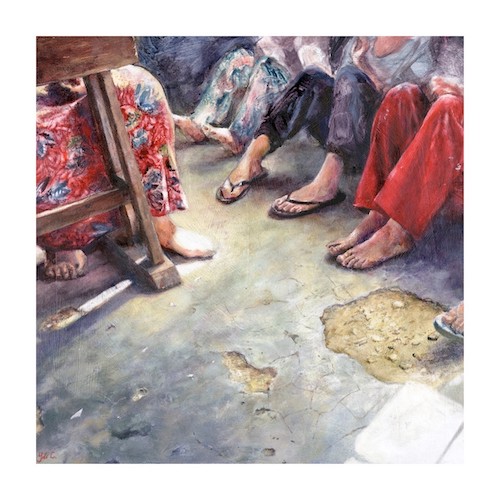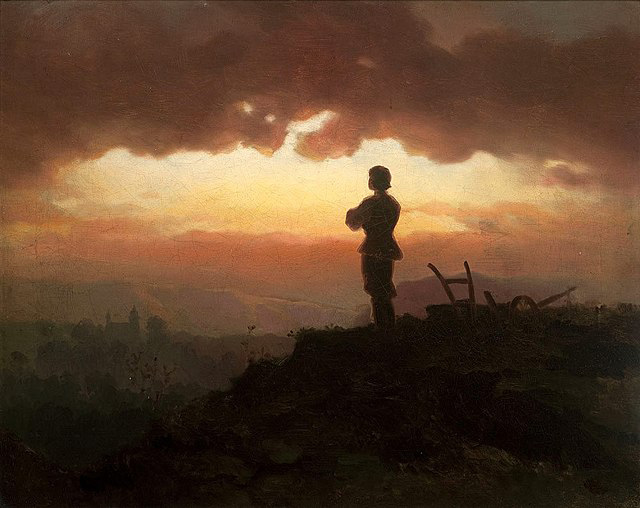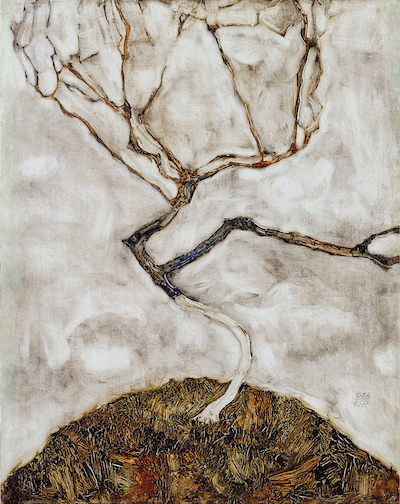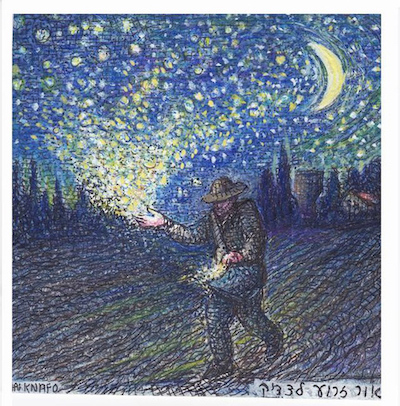Corli is an insatiable collector of individual stories of being. She and her husband serve on the KRUX team in beautiful Stellenbosch, South Africa, where they and their five children live.

The world may just be stitched together with RESILIENCE.
Countless stories of resilience thread through the ages – a fundamental expression of our humanity. What is more, these stories prove resilience to be a complex expression of diverse competencies; resilience is not a single skill. Perhaps what is most common and enduring in all these stories, is the embodiment of hope.
Most of us are aware that the Western world has become digitally captured, convenience addicted, pathologically distracted, and risk allergic. Even so, a belief in the right to have and be anything we desire, permeates. In reality, our lives are often a disillusionment. Certainly for many, especially in the midst of the current upheaval across the globe, life seems futile and hope defeated.
As God’s people – Spirit-renewed sons and daughters – we are called to hard and holy things in this world. It is a great calling; one that asks for undaunted hope, for he who promised is faithful (Heb 10:23).
How do we as citizens of the kingdom live out our hope in times like these, when we are increasingly faced with the brutality of the world, the chaos of history and human capacity for evil?
One small answer is found in resilience. When we practise resilience, we practise truth inside of difficulty.
A battle-hardened confidence in what is true toughens our hold on hope. Such a practice has the power to sabotage evil, sing in the darkness, and choose to live another day.
Five aspects of resilience are worthy of our attention: Overcoming, Quick Learning, Withstanding, Tears and the Work of Joy.
1. OVERCOMING
Human beings are surprisingly well suited to exertion and hard use. There is something in us that longs for challenge and sacrificial service. In biblical terms, kingdom dwellers are called to be hard-wearing farmers, soldiers, and athletes; a life of difficulty and dedication. At the same time, the world is invested in pleasure, and discomfort is avoided reflexively.
The resilient do not shrink from discomfort. Resilient people have learned that the obstacle is the way. The truth is that humans often do not rise to the occasion, but rather sink to the level of what they usually do, or worse. Life bends in the direction of our habits. Those who are resilient have come to embrace a daily practice of difficulty. They have built a steady habit of leaning into obstacles and discomfort, and have found it to be a wholesome and fortifying discipline. Few things in life feel as good as doing what needs to be done.
Now of course, this could be taken too far. It is important to desist when necessary. Nonetheless, Christ-followers, like athletes, are pledged to a race and a crown. Discomfort wakens us to our greater purpose. We have to take action, as intention alone does not bring change. Every moment we are alive is made up of choices we make; small, insignificant choices that alone do not mean much, but combined together, mean everything.

2. QUICK LEARNING
Resilient people know, in addition, that no plan survives contact. Resilience learns, absorbs, shifts, adjusts – the resilient are responsive, not reactive. As God’s people living securely inside of Romans 8:28, we have a sure basis for this kind of resilience. Like determined farmers who persist in the face of failure and disaster, we do not give up on the harvest. We keep learning and showing up. We take captive every catastrophic thought, and preach the gospel to ourselves. We trust when the story takes unexpected turns. We learn to face the world with good humour.
At no point does any of this necessarily become easy. Long-term resilience means getting up and trying again, day after day. The only failure is to lose patience with it all. Not losing our patience and not giving it up becomes a hallowed counter-act in a world full of tragedy and chaos. When instead, we learn what we have to, we change; we become exceptional in our own way.
3. WITHSTANDING
The resilient, furthermore, have learned that everybody has a frontline. A lot of modern freedom is really rooted in fear. It is not so much a commitment to the rules of law, as a timidity before responsibility. The gospel agenda in the world is neither conservative, nor is it liberal; it is transformational. Consequently, sooner or later, it will call on us to have the courage to go against the grain. This kind of withstanding might translate for us, at times, into some arduous, uncomfortable, countercultural living.
As we embody Christ in the world, our fight truly is not with flesh and blood, but against evil and darkness itself. Like soldiers living in enemy territory, armed with the full armour of God, we take up our part in the resistance. Every one of us has a contribution to make. We do not, and should not, all have the same line in the sand. It is God who assigns us our burdens to carry in life. Each assignment is holy before the Lord.
We have been freed from the tyranny of the world, the flesh, and the Evil One. Let us therefore faithfully and resiliently partner in the disruptive work of the good kingdom on earth. Our small actions matter. They are an embodiment of the hope we profess; and hope, this side of eternity, is subversive. We can live loud without making a noise.

4. TEARS
There is a necessary counterweight to add to our discussion of resilience, and that is the significance of tears. It is vital to make room for our human anguish in the face of the wretchedness and the suffering in the world. Life can be unspeakably hard, and at the end of the day, most are not Spartans or stoics or navy SEALs. In our faith history, even David, king of Israel, made his couch swim with tears. The prophets and the ancient fathers tore their clothes. Job sat in the ashes. Jesus wept.
Human tears are fundamental. It is the flowing of sad tears of futility that undergird adaptability and resilience. These tears have the power to bolster, calm, and renew us, and to relieve pain, grief and stress.
How extraordinary for us as kingdom people, cosmic orphans no more, that we pour forth our tears not in isolation, but before the God of the universe whose ears are attentive to our cries? Brought low by discouragement and distress, we come to a place where we may be reminded that God sees us, God hears us, and he knows us; our tears in a bottle, our prayers in a bowl (Ps 56:8; Rev 5:8).
The Lord is near to the broken-hearted. He saves those who are crushed in spirit. He will not extinguish a smoking wick, or snap a bruised reed. God’s power is made perfect in our weakness. Even as we boast in our tears, the power of Christ dwells within us. It is he who gives us beauty for ashes. We walk by faith and not by sight. God is our hiding place, our very present help in trouble. It is in the vale of tears we learn that we are continually surrounded by songs of deliverance (Ps 32:7).
Let us sing our freedom then, also in the darkness. As we sit on the ashes, waiting on the Lord, may our courage be renewed as we make room for our tears, and for the tears of others. May we remember there is “no need to be ashamed of tears, for these bear witness of the greatest of courage, the courage to suffer” (Viktor Frankl). In the darkness are treasures to be gained that no one can take away from us (Isa 45:3). It is here where our hope becomes stubborn.

5. THE WORK OF JOY
Resilient people are thankful to be alive. Adversity focuses the reality that another day is a gift not to be taken for granted, and also, that each day brings its own gifts.
The resilient are in the habit of paying attention.
These words are from a friend within the climbing community, after he lost his leg, his dreams, and very nearly his life to a massive, rogue boulder:
“‘Awe is the seed of love.’ I’ve chosen to carry this line with me to remind me to look for beauty. It reads as an instruction from me to me. Shudder before the beautiful … The act of being humbled by beauty opens us to the seed of love, and there is comfort in the seed of love.”
As Christians, we live and move in the love of God. It is everywhere, when we open our eyes to see it. G. K. Chesterton
said, “There is no way in which a person can earn a star or deserve a sunset.” Let us hunt these gifts, and notice and pay attention to every shred of beauty and goodness and serendipity in the world. This matters, because our weapons are not only our suffering and truth and perseverance, but also beauty and joy, dance and merriment. Evil knows nothing of such things. It is not capable of honest mirth and ordinary joy. It is not comforted by the beautiful. It has no sense of lightheartedness, no inclination to laugh at itself. It has nothing of substance to offer.
As the people of heaven, it is our privilege to fight the good fight not with grim faces, but with our joy. The joy of the Lord is our strength, and our deadliest weapon against evil. Diligently opening our eyes to joy changes everything. It works, even when we do not believe it will. When we faithfully mark every good thing in and out of days, we propagate resilience exponentially. Our attention bends to the actuality of God’s ever-present love for us, personally and specifically. It becomes an ongoing and manifest affirmation that we are seen, that our life matters, that being is good; an asseveration that every given day is a grace to be received, humbly, in trust, even with joy.
It is the persevering work of joy that paves the way to a hope that is defiant. The one thing we need to do when times are hardest, is to live another day.
Resilience overcomes, learns quickly, withstands, embraces tears, and makes earnest work of joy. It is kingdom work; and it upholds a hope which is subversive, stubborn, and defiant, as well as glorious; a hope that is equal to the weighty work before us. This hope is our birthright and our muster as new creations in Christ. Let us be who we are, even as we are considered as sheep to be slaughtered, and we are captives in his train.

The Kirby Laing Centre for Public Theology in Cambridge. Charity registered in England and Wales. Charity Number: 1191741
Kirby Laing Centre, The New Mill House, Unit 1, Chesterton Mill, French’s Road, Cambridge, CB4 3NP
© 2022 The Kirby Laing Centre for Public Theology in Cambridge